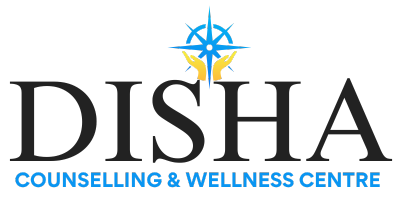Beyond the Talking Circle: Reimagining Indigenous Mental Health Support in EdmontonBefore I'd even heard the term 'two-eyed seeing,' I found myself in a chilly Edmonton waiting room with warm cedar tea in hand—an unexpected welcome at Disha Counselling & Wellness Centre. It's easy to assume that all mental health clinics feel the same: sterile, clinical, …
Beyond the Talking Circle: Reimagining Indigenous Mental Health Support in Edmonton
.jpg)
Before I’d even heard the term ‘two-eyed seeing,’ I found myself in a chilly Edmonton waiting room with warm cedar tea in hand—an unexpected welcome at Disha Counselling & Wellness Centre. It’s easy to assume that all mental health clinics feel the same: sterile, clinical, detached. But that day, it hit me how healing spaces, when intentionally rooted in Indigenous traditions, can feel worlds apart. In this post, you’ll step with me behind the reception desk, discover why Indigenous mental health support deserves a drastically different lens, and maybe, rethink everything you thought you knew about ‘wellness.’
A Cedar Tea Welcome: Shattering Stereotypes About Indigenous Mental Health Support
You walk into most counseling offices and encounter stark white walls, clinical intake forms, and the sterile smell of sanitizer. But when you step through the doors at Disha Counselling & Wellness Centre in Edmonton, something feels different. The aroma of cedar tea greets you, and you might witness a smudging ceremony—an experience that can feel unfamiliar yet oddly comforting if you’re new to traditional practices.
Your first encounter with these cultural elements might catch you off guard. You’re handed a cup of cedar tea instead of a clipboard. Someone explains the significance of the smudge, and suddenly you realize this isn’t your typical mental health appointment. This is where Indigenous mental health Edmonton support breaks free from conventional expectations.
Why Clinical Doesn’t Always Equal Comfortable
Traditional therapy settings often prioritize clinical efficiency over cultural connection. You fill out standardized forms, discuss symptoms in medical terminology, and follow structured treatment protocols. While these approaches work for many, they can create barriers for Indigenous clients seeking support that honors their cultural identity.
At Disha Counselling & Wellness Centre, located at 3818A 97 ST NW, Edmonton, T6E 5S8, you’ll find a different approach. Culturally informed services recognize that healing happens within cultural context, not despite it. Research shows that Indigenous Psychological Services in Edmonton offer counseling for Indigenous, BIPOC, and non-Indigenous populations, acknowledging that effective mental health support must be culturally relevant.
Storytelling Circles vs. Standard Intake Forms
Consider the difference between checking boxes on an intake form and sharing your story in a circle. Both gather information about your experiences, but one reduces you to symptoms while the other honors your complete narrative. You might be surprised by how much more connected you feel when your counselor understands not just what you’re experiencing, but how it fits within your cultural framework.
Traditional storytelling allows you to share your experiences as interconnected parts of your whole being. Instead of isolating symptoms, this approach recognizes how your mental health connects to your relationships, community, and cultural identity. Disha delivers Indigenous culturally-rooted wellness support that integrates these holistic perspectives into their practice.
Breaking Down Barriers Through Community Connection
You know that feeling when you walk into a space where you immediately belong? That’s what happens when mental health services embrace grassroots, community-centered approaches. The formal distance between “provider” and “client” softens when cultural practices create genuine connection.
At Disha, you’re not just another appointment slot. You’re welcomed as a whole person with rich cultural heritage. The staff understands that healing requires more than symptom management—it demands recognition of your complete identity. As one staff member explains:
“Healing happens when you’re seen, heard, and honored as who you are—not just another intake form.”
This philosophy transforms how you experience mental health support. Instead of adapting yourself to fit clinical expectations, you find services that adapt to honor your needs and cultural background.
Changing Perspectives on Mental Health Access
When Indigenous Counselling incorporates traditional practices like smudging and cedar tea, it challenges stereotypes about what professional mental health support should look like. You don’t have to choose between cultural authenticity and quality care—you can have both.
This approach makes mental health support more accessible for Indigenous communities who may have felt disconnected from mainstream services. By creating spaces that feel culturally safe and relevant, centers like Disha remove barriers that prevent people from seeking help.
If you’re ready to experience mental health support that honors your cultural identity, contact Disha Counselling & Wellness Centre at 587-372-3143. Sometimes healing begins with something as simple as sharing cedar tea with someone who truly sees you.
From Generational Trauma to Generational Strength: Stories of Resilience in Edmonton
When Maria first walked into Disha Counselling & Wellness Centre three years ago, she carried more than her own pain. At 45, she brought with her the weight of her mother’s silence about residential school experiences and her teenage daughter’s struggles with identity and belonging. What started as individual therapy sessions evolved into something remarkable—a three-generation healing journey that transformed their family’s narrative from survival to strength.
Maria’s story isn’t unique in Edmonton’s Indigenous communities. You’ll find similar journeys unfolding across the city, where trauma support programs Edmonton are recognizing that healing one person often means healing an entire family line. At Disha, located at 3818A 97 ST NW, Edmonton, this understanding shapes every interaction, every session, every moment of care.
What Residential Schools Support Really Means
The Indian Residential Schools Resolution Health Support Program exists in Edmonton, but meaningful support goes far beyond filling out forms or accessing one-time services. Real residential schools support Edmonton communities need involves understanding that trauma doesn’t end with the survivor—it ripples through generations in ways both seen and unseen.
When you work with families affected by residential school experiences, you quickly realize that traditional therapy models often fall short. The approach at Disha and similar centers recognizes this complexity. They don’t just treat symptoms; they address the deeper wounds that affect how families communicate, how children learn to trust, and how cultural knowledge gets passed down—or doesn’t.
Research shows that CASA’s Indigenous Mental Health Services offer trauma-informed care and education in communities, but what makes the difference is how this care acknowledges the interconnected nature of Indigenous family systems. You’re not healing in isolation; you’re healing within the context of your relationships, your community, your ancestors’ experiences.
From Trauma Support to Growth Support
Here’s where Indigenous knowledge transforms everything. Traditional Western models often focus on what’s broken and needs fixing. But Indigenous approaches to mental health support recognize that within every wound lies the seed of strength. Your ancestors survived genocide, forced assimilation, family separation—that survival lives in your DNA.
At Disha, this perspective shifts the entire conversation. Instead of asking “What’s wrong with you?” the question becomes “What happened to you, and how can we help you reclaim your power?” This isn’t just semantic difference—it’s a fundamental reimagining of what healing looks like for Indigenous communities.
‘Our stories are not just about suffering—they’re about surviving, thriving, and reclaiming what was always ours.’ — Elder involved in Edmonton healing circle
A Conversation Across Generations
Imagine sitting in on a conversation between grandmother and granddaughter, both part of that healing journey at Disha:
“Nôhkom, why didn’t you ever talk about what happened at school?”
“Because I thought silence would protect you, child. I thought if I buried it deep enough, it wouldn’t touch your life.”
“But it did touch me, didn’t it? In the way you held yourself, in the words you couldn’t say…”
“Yes. But look at us now—sitting here, talking. Your children will know their songs, their stories. That’s what healing looks like.”
This conversation, while imagined, captures the essence of what happens when trauma support programs Edmonton truly understand generational healing. The silence breaks. Stories emerge. Cultural knowledge flows again.
If you’re ready to begin or continue this kind of healing journey, Disha Counselling & Wellness Centre offers culturally responsive care throughout Alberta. Call 587-372-3143 or visit disha.ca to learn more about how their trauma-informed approach can support your family’s path from surviving to thriving.

Counselling, Community, and Cedar: Why ‘Culturally Informed’ Isn’t Just a Buzzword
When you walk into Disha Counselling & Wellness Centre in Edmonton, you’re not entering another sterile therapy office with generic motivational posters. The space speaks a different language—literally and figuratively. Here, culturally informed services mean something deeper than checking boxes on a diversity form.
At Disha, located at 3818A 97 ST NW Edmonton, you might hear conversations flowing between English and Indigenous languages during sessions. Therapists don’t just acknowledge your cultural background; they weave it into the healing process. Smudging ceremonies happen alongside traditional talk therapy. Elders’ wisdom sits comfortably next to evidence-based practices. This isn’t cultural decoration—it’s the foundation of how healing happens.
More Than Standard Protocol
While Alberta Health Services Indigenous mental health programs have made strides in accessibility, community-based models like Disha operate differently. Research shows that Alberta Health Services provides accessible mental health services tailored to Indigenous cultures, but the approach often follows institutional frameworks that don’t always align with Indigenous healing traditions.
The contrast becomes clear when you consider how healing is conceptualized. Mainstream services typically focus on individual symptoms and solutions. Native counselling services, however, understand that wellness connects to family, community, and spiritual practices. Native Counselling Services of Alberta focuses on interconnectedness and resilience—concepts that require a completely different therapeutic framework.
As one Indigenous therapist in Edmonton puts it:
‘Culture is the medicine. Our way of healing can’t fit someone else’s blueprint.’
Cedar, Laughter, and Listening
The therapeutic tools at culturally informed centers might surprise you. Cedar isn’t just a plant—it’s medicine. Laughter isn’t just relief—it’s healing. Listening extends beyond words to include dreams, visions, and ancestral guidance. These elements create an atmosphere where you can address trauma through familiar cultural contexts rather than foreign therapeutic models.
At Disha, sessions might include traditional storytelling, land-based activities, or incorporating seasonal ceremonies into treatment plans. You can call 587-372-3143 to learn how these practices integrate with your specific healing journey. This approach recognizes that your mental health connects to your relationship with culture, community, and the natural world.
Addressing the Trust Gap
Many Indigenous communities remain skeptical of mainstream mental health support—and for good reason. Historical trauma from residential schools, forced assimilation, and systemic discrimination created deep mistrust of institutional care. When traditional healing practices were criminalized and suppressed, it damaged the relationship between Indigenous peoples and Western medicine.
Indigenous wellness Edmonton providers like Disha work to rebuild this trust by putting Indigenous knowledge at the center of healing. They hire Indigenous therapists who understand the cultural context of trauma. They create spaces where traditional ceremonies coexist with clinical interventions. Most importantly, they let you define what healing looks like rather than imposing external definitions.
This approach goes beyond token gestures. It’s embedded in daily practices—from how appointments are scheduled (allowing for ceremony time) to how family involvement is encouraged (recognizing collective healing traditions). Every aspect of care acknowledges that your cultural identity isn’t separate from your mental health—it’s integral to it.
The difference between culturally informed services and standard approaches isn’t just methodology. It’s about recognizing that healing happens within cultural contexts, not despite them. When you have access to services that honor your traditions while addressing your mental health needs, you’re not choosing between your culture and your wellness—you’re using one to strengthen the other.
The Paper Trail Nobody Tells You About: Navigating Coverage, Programs, and Benefits
When you’re seeking Mental Health Services Alberta, the maze of paperwork and program eligibility can feel overwhelming. You might wonder which forms to fill out, which programs apply to your situation, or whether you’re missing out on coverage you’re entitled to. The truth is, many families don’t know about the support that’s already available to them.
Little-Known Programs That Could Change Everything
The Non-Insured Health Benefits (FNIHB) program covers counseling for eligible Indigenous people, but here’s what they don’t tell you upfront: navigating the application process can be tricky. You need to know exactly what documentation to submit and when. That’s where Disha Counselling & Wellness Centre steps in to help families cut through the red tape.
Research shows that the FNIHB Program covers mental health counseling for eligible Indigenous individuals, yet many people never access these benefits simply because they don’t know how to start the process. Disha’s team understands these systems inside and out. They’ll walk you through eligibility requirements, help gather necessary documents, and coordinate with program administrators on your behalf.
Your Quick Guide to Accessing Support
Getting counseling through the Indian Residential Schools Resolution Health Support Program and Alberta Health Services Indigenous programs doesn’t have to be complicated. Here’s what you need to know:
- The Indian Residential Schools Resolution Health Support Program runs in Alberta and provides specific support for former residential school students and their families
- Alberta Health Services offers accessible mental health services tailored to Indigenous cultures
- Both programs can work together with other coverage options
At Disha’s Edmonton location on 97 Street NW, intake advisors help coordinate between different programs to maximize your coverage. They know which services complement each other and how to avoid gaps in support.
The Questions Nobody Asks—But Should
Before you start any application process, consider these often-overlooked questions: Are you eligible for multiple programs? Do you need a community liaison to help with coordination? Is language support available during appointments?
Many families assume they can only access one type of coverage at a time. That’s not always true. Edmonton Counselling services through Disha can help you understand how different programs work together. They also provide coordination with community liaisons and ensure language support is available when needed.
‘The paperwork can be daunting, but you don’t have to do it alone—help is only a phone call away.’ — Disha Counselling & Wellness Centre intake advisor
A Family’s Discovery Changes Everything
Imagine this scenario: A family cleaning out old filing cabinets discovers documents showing a grandparent attended residential school. They’d been paying out-of-pocket for counseling services, not knowing this documentation could qualify them for additional coverage through specialized programs.
This isn’t uncommon. Families often have eligibility they’re unaware of. Sometimes it’s through family connections to residential schools. Other times it’s through band membership or treaty status that opens doors to specific Mental Health Services Alberta programs.
Coverage details can be complex and under-communicated. Families often miss out without proper guidance. That’s why Disha assists with application paperwork and program coordination. Their team knows that every family’s situation is different, and they take time to explore all possible coverage options.
When you call 587-372-3143, you’re not just getting counseling services. You’re getting advocates who understand the system and will help you navigate it. They partner with clients to explore benefits and mental health program options available both provincially in Alberta and federally.
The reality is that accessing Indigenous mental health support shouldn’t require a law degree to understand your options. With the right guidance, the paper trail becomes much clearer.
Beyond the City Limits: Reaching Indigenous Communities Across Alberta
Picture this: A Disha counselor loading her vehicle with laptops, mobile hotspots, and traditional medicines before embarking on a week-long journey across Alberta’s vast landscape. From the oil sands of Fort McMurray to the foothills near Calgary, she’s bringing Indigenous mental health support directly to communities that have waited too long for accessible care. This isn’t just a road trip—it’s a lifeline extending far beyond Edmonton’s boundaries.
You might wonder how a counseling center based in Edmonton can truly serve Indigenous communities scattered across Alberta’s 661,000 square kilometers. The answer lies in innovation, partnership, and an unwavering commitment to breaking down geographical barriers that have historically limited access to Indigenous wellness Edmonton services.
Mobile and Digital Solutions Bridging the Distance
Disha Counselling & Wellness Centre has developed a comprehensive network of mobile, remote, and digital supports that extend their reach across Alberta. Their telehealth platforms connect you with culturally competent counselors regardless of your postal code. Video sessions, crisis text lines, and digital wellness resources ensure that Mental Health Services Alberta remain accessible even when the nearest major city feels worlds away.
Think of poor internet connection in remote areas like emotional barriers to healing—both create frustrating gaps between you and the support you need. Just as you might try different spots in your home to get better Wi-Fi signal, Disha’s outreach team works creatively to find ways around technological limitations. They partner with local community centers, schools, and health stations to establish reliable connection points for telehealth sessions.
Strategic Partnerships Creating Local Impact
Research shows that School-Based Mental Health Programs are available in partner First Nation and Métis schools through CASA, demonstrating how collaborative approaches strengthen community support networks. Disha leverages similar partnerships, working with local Indigenous organizations, band councils, and community leaders to establish trusted presence in rural areas.
These partnerships bridge cultural and geographical gaps for Métis, Inuit, and First Nations communities throughout Alberta. Local knowledge keepers work alongside Disha’s professional counselors, ensuring that traditional healing practices complement modern therapeutic approaches. You’re not just receiving generic mental health services—you’re accessing care that honors your cultural identity and community values.
Overcoming Persistent Challenges
Despite creative outreach efforts, significant barriers remain. Poor internet connectivity can interrupt crucial therapy sessions. Limited transportation options make it difficult for some community members to reach even mobile service locations. Finding local partners in every remote area presents ongoing challenges, particularly in regions where resources are already stretched thin.
Yet persistence defines this work.
“Wellness shouldn’t have a ZIP code. Healing belongs everywhere we call home,”
explains a Disha outreach coordinator. This philosophy drives continuous innovation in service delivery methods.
Province-Wide Integration of Indigenous Wellness
The integration of Indigenous Wellness Support Services province-wide represents a significant step toward equitable access. Disha participates in this broader movement, ensuring their services complement and enhance existing community resources rather than duplicate efforts.
When you contact Disha Counselling & Wellness Centre at their Edmonton location (3818A 97 ST NW, Edmonton, T6E 5S8, or call 587-372-3143), you’re connecting with a network that extends across Alberta. Whether you live in a remote First Nation community, a small Métis settlement, or anywhere in between, culturally appropriate mental health support is within reach.
The journey toward comprehensive Indigenous communities mental health support continues evolving. While challenges persist, the combination of technology, partnership, and unwavering commitment to cultural competency ensures that healing truly has no geographical boundaries in Alberta.
TL;DR: If you thought mental health support was one-size-fits-all, think again. Edmonton’s evolving Indigenous wellness landscape—exemplified by Disha Counselling & Wellness Centre—is blending tradition, innovation, and deep-rooted community wisdom for transformative, culturally attuned healing.







